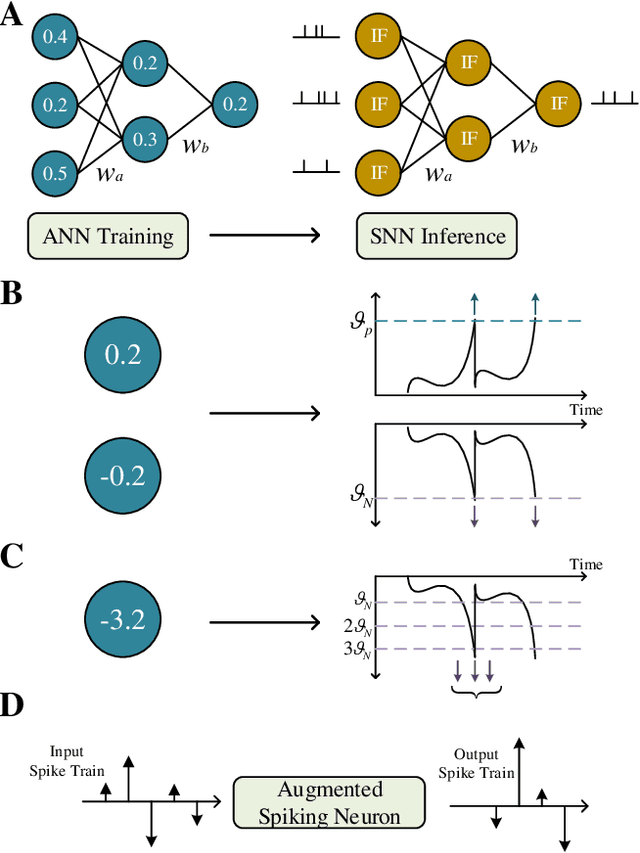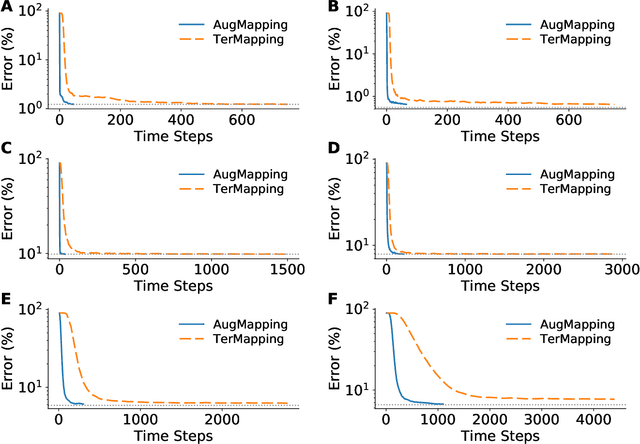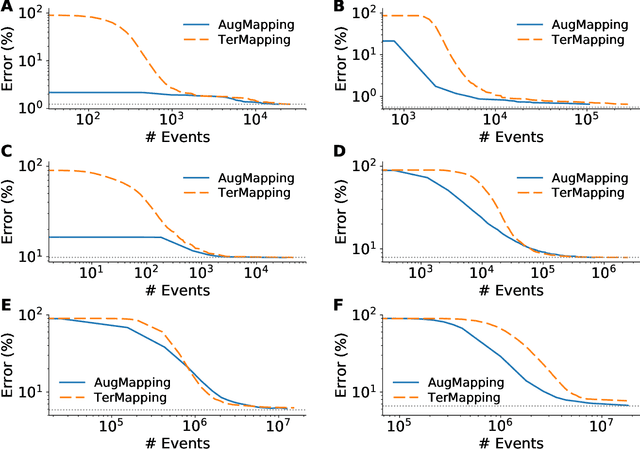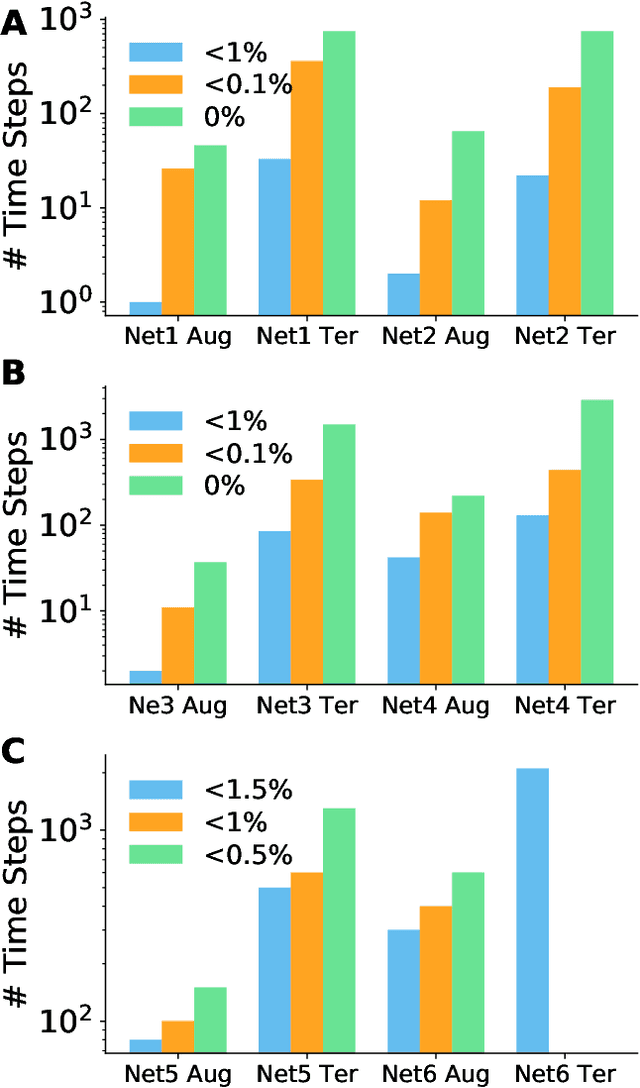Constructing Accurate and Efficient Deep Spiking Neural Networks with Double-threshold and Augmented Schemes
Paper and Code
May 05, 2020



Spiking neural networks (SNNs) are considered as a potential candidate to overcome current challenges such as the high-power consumption encountered by artificial neural networks (ANNs), however there is still a gap between them with respect to the recognition accuracy on practical tasks. A conversion strategy was thus introduced recently to bridge this gap by mapping a trained ANN to an SNN. However, it is still unclear that to what extent this obtained SNN can benefit both the accuracy advantage from ANN and high efficiency from the spike-based paradigm of computation. In this paper, we propose two new conversion methods, namely TerMapping and AugMapping. The TerMapping is a straightforward extension of a typical threshold-balancing method with a double-threshold scheme, while the AugMapping additionally incorporates a new scheme of augmented spike that employs a spike coefficient to carry the number of typical all-or-nothing spikes occurring at a time step. We examine the performance of our methods based on MNIST, Fashion-MNIST and CIFAR10 datasets. The results show that the proposed double-threshold scheme can effectively improve accuracies of the converted SNNs. More importantly, the proposed AugMapping is more advantageous for constructing accurate, fast and efficient deep SNNs as compared to other state-of-the-art approaches. Our study therefore provides new approaches for further integration of advanced techniques in ANNs to improve the performance of SNNs, which could be of great merit to applied developments with spike-based neuromorphic computing.
 Add to Chrome
Add to Chrome Add to Firefox
Add to Firefox Add to Edge
Add to Edge